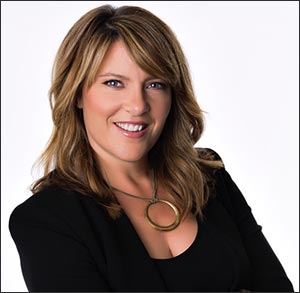
With successes such as four seasons of Celebrity Game Face on E! and an upcoming competition format with Chrissy Teigen, Critical Content is navigating the ups and downs of the entertainment landscape with a nimble approach. Crazy Rich Asians producer SK Global acquired the company in January 2022, coming just a few years after Critical Content snapped up Jenny Daly’s T Group. Daly, who today serves as president of Critical Content, talks to TV Formats about the current environment for risk-taking, paper pitches and working in the U.S. marketplace.
 TV FORMATS: In terms of original format creation, what factors are you considering when bringing a new concept to the market?
TV FORMATS: In terms of original format creation, what factors are you considering when bringing a new concept to the market?
DALY: We determine which outlets are ideal fits for the specific idea we are crafting. We also consider the following questions: Why would this show sell? What makes it unique? What elements about this concept stand out above all and would be loud enough to get interest from viewers? Should we bring any IP to the concept or celebrity attachment to make it more enticing?
TV FORMATS: How difficult is it to get paper pitches off the ground these days?
DALY: Paper pitches tend to be useful for formats that don’t have visual support to represent the concept. Shows that have big gaming elements can still be sold on paper with renderings to help support the vision, but we still tend to create a sizzle or organically attach a celebrity to help the sale. If the pitch is a character-based concept, then tape is a must.
TV FORMATS: What’s working best in the entertainment landscape at present?
DALY: For broadcast networks looking for secure investments, they opt for shows that have known IP and are familiar to the audience. So, old shows are being reignited, like Deal or No Deal on NBC, 100,000 Pyramid and Celebrity Family Feud on ABC and The Millionaire Matchmaker on The CW. For streamers and cable, celebrity-driven content is a big element of the sale, especially for their involvement to be on camera versus just as an executive producer. Because there’s so much to watch now, viewers must have a reason to tune in above all else, so familiar titles and faces definitely help steer interest.
TV FORMATS: How are you working with third-party formats to package them stateside?
DALY: I am seeking relationships with a number of European and Asian partners whose content is proven but not overly exposed in the U.S.
TV FORMATS: Looking at the U.S. market, how risk-averse is the landscape right now? What about internationally?
DALY: Currently, there is very little risk-taking happening in our industry. People are not willing to take a risk on something that potentially comes across as immensely different or extremely unique—other than FOX, perhaps. The need to have familiar DNA in the content is driving most all the sales. When one network goes outside a comfort zone, a number of similar shows will follow or, at least, request shows in the same ballpark.
TV FORMATS: As you look at the year ahead, where do you see the greatest opportunities in the entertainment formats business?
DALY: Our greatest opportunities are to establish co-pros and first-looks with international production companies to build content we can bring to the U.S. We can then take those formats and package them with unique twists, attach loud titles and bring great celebrity partners to help steer the projects. I am also looking at brand partnerships to control the content distributed both domestically and internationally. This extends the amount of engagement exponentially, as well as the control of the content’s success…that 100 percent excites me.
TV FORMATS: What are the challenges it faces?
DALY: I feel we are in an age where content is always going to be needed, but how much of it is needed will be reduced as linear continues to diminish. Repeats seem to be just as lucrative—if not better than—originals based on consumer consumption. With networks continuing to consolidate, sellers have fewer options to land more lucrative deals based on the inability to bring competition to the market, especially when competing outlets own one another.







